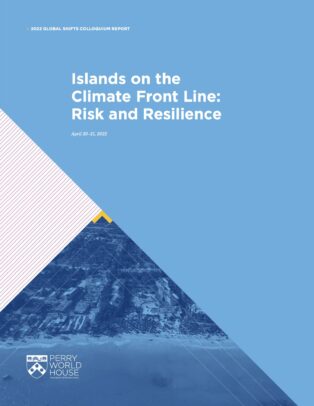
Islands on the Climate Front Line: Risk and Resilience
Climate change is a defining global challenge of this century. If global warming continues to progress as it has done, there will be dire consequences for everyone on the planet. With the dangerous levels of warming predicted, climate change will be not only an environmental threat, but a collective socioeconomic crisis. It will impact where people can live; where they work; how they travel; and how much they have to eat.
Small Island Developing States (SIDS) are among those countries most vulnerable to this burgeoning emergency, and are already feeling its impacts. Many are remote, with much of their populations living in areas exposed to storm surges and sea-level rise. Their economies are often dependent on natural resources, making them highly susceptible to a changing climate. SIDS are harbingers of what will happen around the world in the coming decades, forced to lead the search for solutions to a problem they did not cause.
To advance ideas on how SIDS can respond to climate change, Perry World House convened its 2022 Global Shifts Colloquium, “Islands on the Climate Front Line: Risk and Resilience.” Stakeholders representing a range of academic and policy institutions—as well as the three island regions of the Caribbean, the Pacific, and the Indian Ocean and South China Sea— investigated SIDS’ climate vulnerability and discussed how they can prepare for this environmental and socioeconomic emergency, and what the international community can learn from their efforts.
The colloquium report—accompanied by a series of thought pieces from participants—sets out how to foster local, regional, and global climate action, and build climate adaptation across critical sectors.

